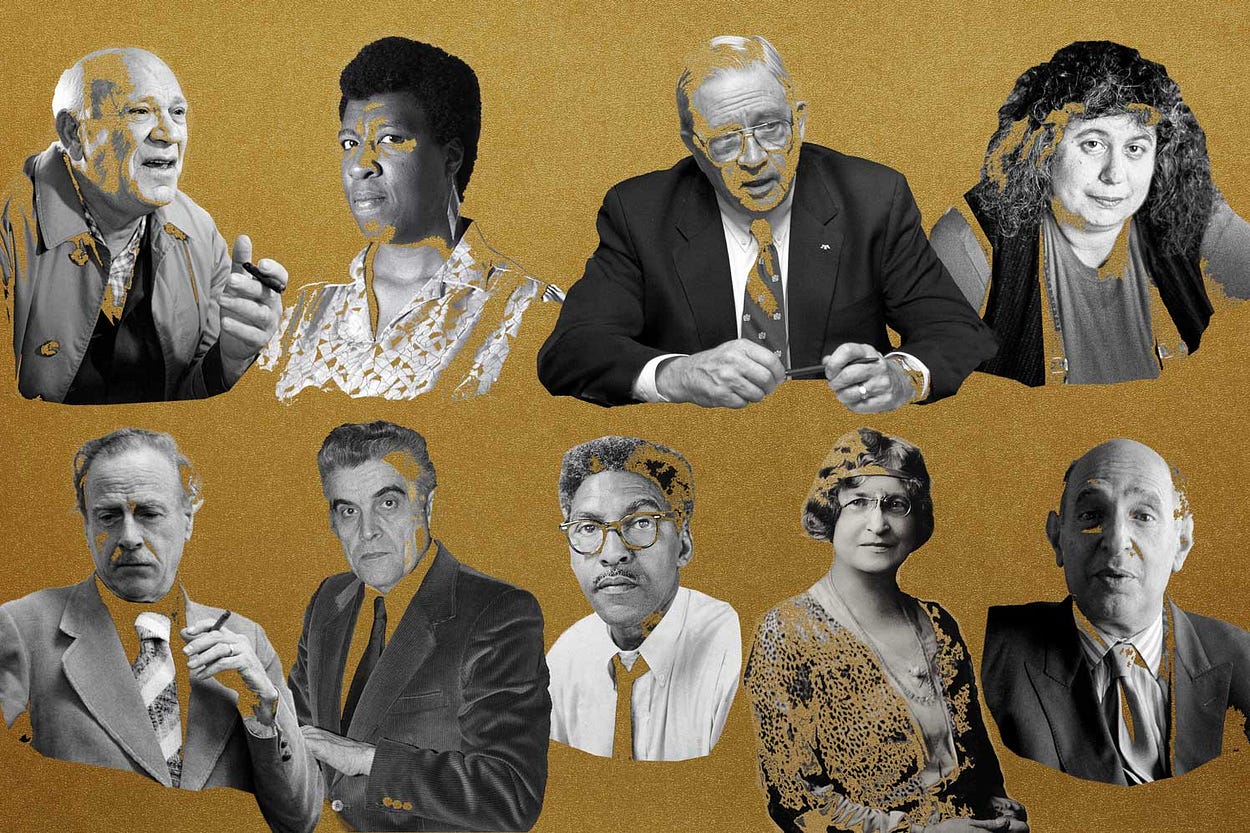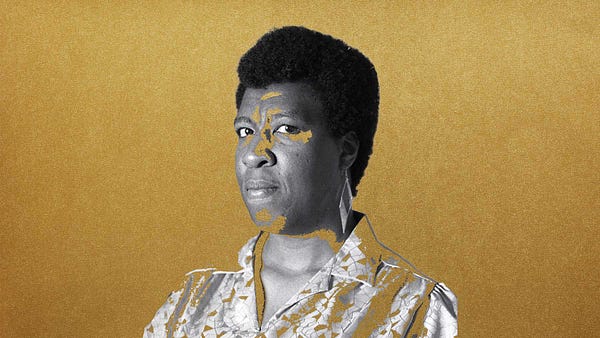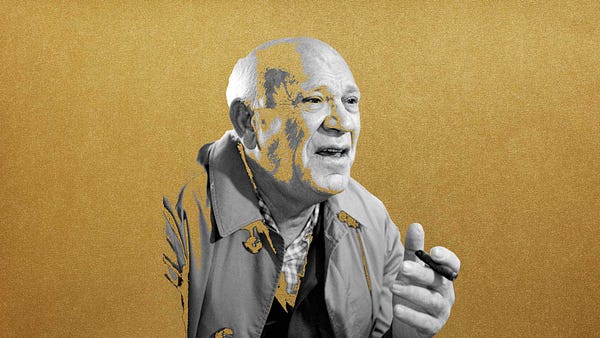
Welcome back to The Prophets, our Saturday series about fascinating people from the past who foresaw our current moment. Last week, Tiya Miles wrote about science fiction writer Octavia Butler, who predicted the political, technological, and environmental forces that would roil the twenty-first century.
Today, we bring you our ninth and final prophet, René Girard, whose theory of “mimetic desire” has become especially prescient in our internet age.
Today, a single tweet could wreck a career. It could even bring down a government, if the stars are aligned. Mobs gather online instantly, ideologies form seemingly overnight, and cancel culture punishes those who dare dissent. This precarious, pernicious world is the one we live in now. But decades before anyone had heard of “doxxing” or “downvoting” or “dragging,” a French literary scholar at Stanford, born more than 100 years ago, warned of what was to come. He foresaw the perils of combining human nature with a globally connected world.
“When the whole world is globalized, you’re going to be able to set fire to the whole thing with a single match,” predicted French theorist René Girard.
So long as globalization was slow in coming, everyone hoped and prayed that it would come soon. World’s fairs were staged in its honor, one after another. Now that globalization is here, however, it arouses more anxiety than pride.
The longtime Stanford professor of French language, literature, and civilization explored envy, imitation, crowd behavior, and reciprocal violence, starting in the 1950s. He first developed his insights not by poring through datasets or running a social science lab, but surprisingly, from a deep study of great novels.
Novels tell us the truth, he said. One of the aspects many people find so compelling about his work is that he could extrapolate theories of real-life behavior from made-up stories—from Cervantes, Proust, Dostoevsky, Flaubert. The competitive salons and social climbing of Proust’s world led Girard to theorize about the origins of human rivalry. The self-destructiveness of Dostoevsky’s characters sparked Girard’s ideas about the desire to escape our limits and even become someone else.
Now, nine years after his death, people in the fields of anthropology, business, history, literature, popular culture, psychology, religion, and even the hard sciences, are taking greater interest in his ideas about the forces that drive much of human behavior. Silicon Valley, in particular, is fascinated by his thinking. But it all began with literature.
Girard’s theory of mimetic desire describes our fundamental compulsion to want what others want or have. “We don’t even know what our desire is. We ask other people to tell us our desires,” he said at a Stanford lecture in 2007. “We would like our desires to come from our deepest selves, our personal depths—but if it did, it would not be desire. Desire is always for something we feel we lack.”













